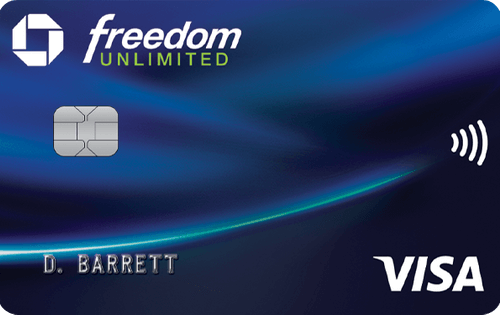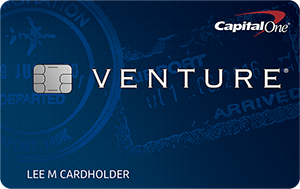Few Americans have the cash they need on hand to pay for big-ticket items upfront. That’s why it’s not unusual for people to take out mortgages, car loans and student loans, so they can pay for these costly expenses over time.
But when it comes to other major purchases — like home renovations, engagement rings, medical bills — an increasing number of Americans are turning to personal loans to help manage the cost.
Personal loans are the fastest-growing debt category, according to a 2019 Experian study. While mortgages still made up the largest portion of consumer debt (71.7%), in 2019, Americans reportedly took out personal loans at a faster rate than auto loans, mortgages, credit cards and student loans.
A form of installment credit, personal loans are sometimes used as an affordable alternative to credit cards because they generally charge lower interest rates. Personal loan APR averages 9.34% according to the Fed’s most recent data. Meanwhile, the average credit card interest rate is around 16.6%.
Unlike with revolving credit, you don’t continue to have access to your loan once you pay it off — a plus for people concerned with getting in over their heads with spending.
Here are some ways that people use personal loans.
1. Paying off debt
Debt consolidation is the most common reason that people take out personal loans. The average American has about four credit cards in their wallet, and when you run up a balance on multiple cards, it can be difficult to manage all the different bills and APRs. A personal loan can streamline your payments into one monthly bill.
Likewise, personal loans could save you on interest. People who refinance high-interest credit card debt can save money with a lower APR.
If you have a good to excellent credit score, a balance transfer card offers another way to pay off debt, and you might not have to pay interest.
The Citi® Double Cash Card comes with 0% for the first 18 months on balance transfers (then 13.99% to 23.99% variable), and after the debt is gone you can earn 2% cash back on all purchases (1% when you make a purchase and an additional 1% when you pay your credit card bill).
If you decide to go with a balance transfer card rather than a personal loan, make sure you have a clear repayment plan so you finish paying off the balance before the intro period ends and you get hit with a high interest rate.
2. Home renovations
About 17% of consumers in Experian’s study used their loan for home improvements. Whether you’re looking to do a full gut job or just upgrade your appliances, a personal loan gives you the option to pay for home repairs with an installment plan.
Spending a few hundred dollars per month is probably more realistic for many Americans than dropping $20,000 at once on a new kitchen. However, keep in mind that you pay interest to use a personal loan and the renovations will end up costing more in the long run. If you’re not in a rush to do the renovation, it could be more cost effective to make a plan to save the cash you need instead of taking on more debt.
For somewhat smaller purchases, like a new washer/dryer, consider a 0% APR credit card like the Chase Freedom Unlimited®. The Freedom Unlimited offers one of the longest periods to finance home renovation projects, with no interest on new purchases over the course of 15 months (then 14.99% to 23.74% variable APR).
Chase Freedom Unlimited®

On Chase’s secure site
-
Rewards
Earn 5% cash back on grocery store purchases (not including Target or Walmart purchases) on up to $12,000 spent in the first year, 5% cash back on travel purchased through Chase Ultimate Rewards®, 3% on dining (including takeout) and drugstores and 1.5% on all other purchases
-
Welcome bonus
$200 cash back after you spend $500 on purchases in your first 3 months from account opening
-
Annual fee
-
Intro APR
0% for the first 15 months on purchases
-
Regular APR
14.99% to 23.74% variable on purchases and balance transfers
-
Balance transfer fee
Either $5 or 5% of the amount of each transfer, whichever is greater
-
Foreign transaction fee
3% of each transaction in U.S. dollars
Planning a remodel? Here are the best credit cards for upgrading your home
3. Education
Federal student loans are usually the best choice to get a flexible, low-interest loan to pay for college. But if you’re just looking to take some online courses or develop a new skill to help advance your career, a personal loan can be a good option to help you afford the education you need to get a better job or qualify for that promotion.
Before you sign up, be sure to check for no-cost alternatives first, such as asking your employer whether they sponsor employee professional development.
And if you’re looking to make a career shift, research what kind of salary you can expect to bring in once you complete your education. It’s important to understand if you’ll be able to afford the loan’s monthly payments with your new (and hopefully improved) salary and if the costs are worth it.
4. An emergency
Unfortunately, many Americans can’t afford to save for emergencies, and you may need a personal loan to help you cover a car repair, medical bill or day-to-day expenses if you suddenly lose your job. Before you decide to go this route, research all your options. See if you can negotiate down the costs, or set up a payment plan with the mechanic or your health-care provider. And if you’ve lost your job, find out what unemployment benefits you qualify for so that, if you still need a loan, you can minimize the total amount you need to borrow.
5. Tax debt
If you owe the IRS money that you don’t have available in a savings account, you could take out a personal loan to cover the costs. While the IRS does offer payment plans, they come with fees. Do you research before you take out a loan, comparing the fees you’ll pay for a IRS payment plan with the total interest you’ll pay over the lifetime of your loan.
6. Wedding costs
The average American wedding costs over $33,000 according to The Knot, which is a big chunk of change. If you and your partner are comfortable with idea of taking on debt, you might want to consider a personal loan to pay for your wedding expenses. Of course, your wedding doesn’t have to cost nearly as much as the average, but if celebrating your special day in style is high priority, crunch the numbers to see if a loan is the best way to cover the costs. Again, it’s important to have a clear payoff plan and understand how the monthly loan payments will impact your overall budget.
And if you’ve got the wedding covered but need cash to pay for the engagement and/or wedding ring, you could look into financing that with a loan, too.
7. A major life change
Moving, divorce, career changes, etc. come with emotional and financial costs. As much as possible, plan ahead for these transitions, but if you’re in a pinch and need money to hold you over, you may be able to get a personal loan in a matter of days.
8. Vacations
Increasingly, airlines and travel companies are offering point-of-sale loans to customers who want to escape the winter blues and get away. You can also fund your vacation with a personal loan, though it’s not advised.
There are better ways to travel that don’t drain your resources. If you’re fortunate enough to have disposable income, challenge yourself to put it into an existing or new savings account before you borrow money. The Ally Online Savings Account is a good option to save for vacations because you can create up to 10 “buckets,” or funds, within the same account. This helps you organize and keep track of your savings goals so you don’t have to borrow unnecessarily.
Also consider a travel rewards credit card with a large welcome bonus to see if you can cut down the cost of your vacation by cashing in points or miles. The Capital One® Venture® Rewards Credit Card has a generous welcome bonus of 50,000 points — equal to $500 toward travel — when you spend $3,000 on purchases within the first three months following card activation.
Capital One® Venture® Rewards Credit Card

Information about the Capital One® Venture® Rewards Credit Card has been collected independently by CNBC and has not been reviewed or provided by the issuer of the card prior to publication.
-
Rewards
5X miles on hotel and rental cars booked through Capital One Travel℠, 2X miles per dollar on every other purchase
-
Welcome bonus
100,000 bonus miles when you spend $20,000 on purchases in the first 12 months from account opening or earn 50,000 miles if you spend $3,000 on purchases in the first 3 months
-
Annual fee
-
Intro APR
N/A for purchases and balance transfers
-
Regular APR
17.24% to 24.49% variable on purchases and balance transfers
-
Balance transfer fee
3% for promotional APR offers; none for balances transferred at regular APR
-
Foreign transaction fee
-
Credit needed
What to consider before taking out a personal loan
While the notion of fast cash sounds great, remember that you’ll have to start making payments on your personal loan right away (usually within 30 days). Before you take out a personal loan, make sure you have a clear purpose for it and a plan to pay it back.
Keep these things in mind when you do your research:
- Interest rates: Most personal loans come with fixed-rate APRs, so your monthly payment stays the same for the loan’s lifetime. In a few cases, you can take out a variable-rate personal loan. If you go that route, make sure you’re comfortable with your monthly payments changing if rates go up or down.
- The size of your loan: Lenders offer a wide range of loan sizes, from $500 to $100,000. Before you apply for a loan, consider how much you can afford to pay each month.
- The loan’s term: The length of time you have to pay off the loan is usually between one and seven years. The longer the term, the smaller your monthly payments and the higher your interest rates.
- Fees: Some lenders charge origination, or sign-up, fees, but it’s possible to avoid these fees.
Editorial Note: Opinions, analyses, reviews or recommendations expressed in this article are those of the CNBC Select editorial staff’s alone, and have not been reviewed, approved or otherwise endorsed by any third party.

